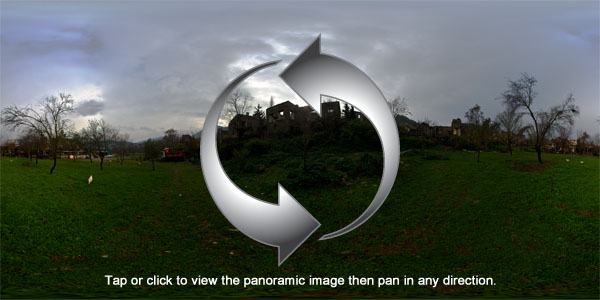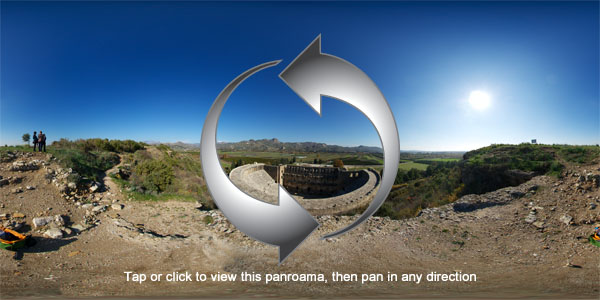When I started travelling alone, French cars were enthralling. They were quirky-looking with ingenious technology. And they had an attachment to motor-sport. Eighteen years old, hitch-hiking back from Florence, I got stuck in a field near Strasbourg. Sitting in the sun dopily looking at rolling green Alsatian hills for most of a day, I saw and will never forget a Renault R8 Gordini driven hard on a lonely road, punctuating my boredom. All crackling exhaust, French racing bleu with two longitudinal white stripes and hilarious negative camber rear suspension.
Later on that same trip I eventually arrived in Paris. Being intellectually ambitious, I had my pockets stuffed with Livre de Poche editions of Sartre and I went, my rucksack and I, straight to the vast Renault and Citroen showrooms on the Champs-Elysee to confirm my feelings about the superiority of French culture. The showrooms seemed intoxicatingly sophisticated, places of worship for a more advanced civilization. Does anybody now remember the Renault Fuego ? I saw one spot-lit on a plinth in the first arrondissement of Paris. It was bright green, like a tree frog.
The Arcane Art Of Cold Emailing Bloggers
The big day has arrived. Your product is ready to launch, you know exactly which bloggers you need to target, and all you have to do now is well, convince them to write about your product with only a few lines of email. Very few.
In both of my companies I managed the marketing of products which were anything but “sexy” – not usual blogger material and still – we received coverage. I also guest posted for TechCrunch, LifeHacker, The Next Web and others without much (or any) writing references. Here are the emails which led me there and what stands behind them.
The biggest leap I made to get more press coverage was by changing the main question I asked myself when writing the email. At first, like most people, I simply tried to explain why our product benefits users. Having lots of engaged users is obviously my goal but bloggers have a different one. They’re not interested in your users but rather in their own users = readers. Bloggers want to get as many people to read their posts, and if you can help them meet that goal – you’re in. So I started asking myself “How will writing about my product drive more traffic to blog X?”. That changed everything. Emails were suddenly getting answered and my product started appearing in blogs. When focusing on the bloggers’ goals you might not get to list all your features or discuss the innovative technology in detail, but – you’ll get in.
Kayaköy, Turkey Panoramic Scene

Tap or click on the image to view the panoramic scene. Then pan in any direction.
Wikipedia:
Kayaköy (Greek: ???????, Levissi or Greek: ???????????, Karmylissos, although modern English usage seems to be Karmylassos) is a village 8 km south of Fethiye in southwestern Turkey where Anatolian Greek speaking Christians lived until approximately 1923. The ghost town, now preserved as a museum village, consists of hundreds of rundown but still mostly intact Greek-style houses and churches which cover a small mountainside and serve as a stopping place for tourists visiting Fethiye and nearby Ölüdeniz.
It was built on the site of the ancient city of Carmylessus in the 18th century. It experienced a renewal after nearby Fethiye (known as Makri) was devastated by an earthquake in 1856 and a major fire in 1885. After the Greco-Turkish War, Kayaköy was largely abandoned after a population exchange agreement was signed by the Turkish and Greek governments in 1923. Many of the buildings were damaged in the 1957 Fethiye earthquake.
Antalya Archeological Museum Panorama

Tap or click on the image to view the panoramic scene. Then pan in any direction.
Wikipedia and Turkey Travel Planner.
Locking in the Homeowner
At the government level, the Fed policy also has created a double lock-in. By buying so much of the debt of the government at very low interest rates, the Fed has enabled Congress and the administration to spend more than they otherwise could if they had to pay the full, real-market interest rate on the government debt. At the moment, the U.S. government is paying only about $225 billion a year on its $16 trillion debt. If it had to pay normal interest rates of, say, 6 percent rather than 2 percent, its interest payments would be something in the order of $800 billion, or roughly a half-trillion dollars a year more. Most of this additional interest payment would have to come out of spending, because to try to borrow this additional amount would result in an interest-rate spiral concluding in the inability to sell any debt. If Congress tried to increase taxes to cover the additional debt payments, the tax increase would need to be so large as to put the economy in a deep recession, or worse, resulting in a great fall in revenue.
The Fed acknowledges the impossibility of buying more and more government debt forever at almost zero interest. Thus, it has said at some point — when growth is higher and unemployment is lower — it will raise interest rates. Its current policies are keeping growth stagnant, however, because the Fed is, in effect, misallocating capital by subsidizing the government, the big banks and some big companies with artificially low interest rates, while starving the job-creating, midsize and highly entrepreneurial companies of needed funds. The Fed and the Obama administration are now locked in a fiscal death dance.
A Day in the Life of a Freelance Journalist—2013
I am a professional journalist who has made my living by writing for 25 years and am not in the habit of giving my services for free to for profit media outlets so they can make money by using my work and efforts by removing my ability to pay my bills and feed my children. I know several people who write for the Atlantic who of course get paid. I appreciate your interest, but, while I respect the Atlantic, and have several friends who write for it, I have bills to pay and cannot expect to do so by giving my work away for free to a for profit company so they can make money off of my efforts. 1200 words by the end of the week would be fine, and I can assure you it would be well received, but not for free. Frankly, I will refrain from being insulted and am perplexed how one can expect to try to retain quality professional services without compensating for them. Let me know if you have perhaps mispoken.
Aspendos Panoramas

Tap or click on the image to view the panoramic scene. Then pan in any direction.
Wikipedia and Turkey Travel Planner (Tom Brosnahan).
It was a beautiful day during our recent visit to Aspendos, just east of Antalya, Turkey.
A few more Aspendos panoramas:


Lost in Venice after Sunset
Venice is always beautiful. At sunset, though, the Grand Canal is dressed in a mesmerizing color palette. We arrived on the Academia Bridge just in time to be able to capture the canal bathed in the beautiful sunset golden light.
The Rise of the Artist
Education and parenting should aim to provide the conventional skills (math, problem solving, and test taking skills) while also encouraging creative, out-of-the-box type thinking. Computers are no match for the average fourth-grader when it comes to creativity.
2
Instead of making a resolution to learn how to code in 2013, you might make a resolution to learn how to draw. After a few months of lessons you might begin to observe the world differently seeing details, light and shadows, shapes, proportions, perspective and negative space.3
Instead of encouraging your child to major in engineering, you might encourage her to study philosophy, ask smart unsettling questions and practice making unusual and unexpected mental associations.
The Annotated Wisdom of Louis CK
I did a show in New Jersey in the auditorium of a technical high school … Technical high school, that’s where dreams are narrowed down. We tell our children, “You can do anything you want.” Their whole lives. “You can do anything!” But this place, we take kids – they’re 15, they’re young – and we tell them, “You can do eight things. We got it down to eight for you.” [Louis C.K.: Hilarious, 2011]
The earliest stand-up comedy I was aware of was Bill Cosby … I watched Saturday Night Live as soon as I was aware of it, and Monty Python used to be on PBS at weird hours, so I used to try to watch that. And I loved George Carlin on SNL, that was the first stand-up I ever really remember seeing on TV. And then Steve Martin. I guess I was in fifth or sixth grade when Steve Martin showed up, and he was instantly my idol. And Richard Pryor around the same time too, I sort of became aware of him, though I don’t remember the first time I saw him. [AST, 2006]
Jobs
The last jobs i had were fixing cars and covering football games for a local access TV station. as in driving the mobile van to the field, setting up 3 cameras, teaching depressed grownups and interns how to use them and directing the game from the van and then wanting to kill myself. [Reddit, 2011]
